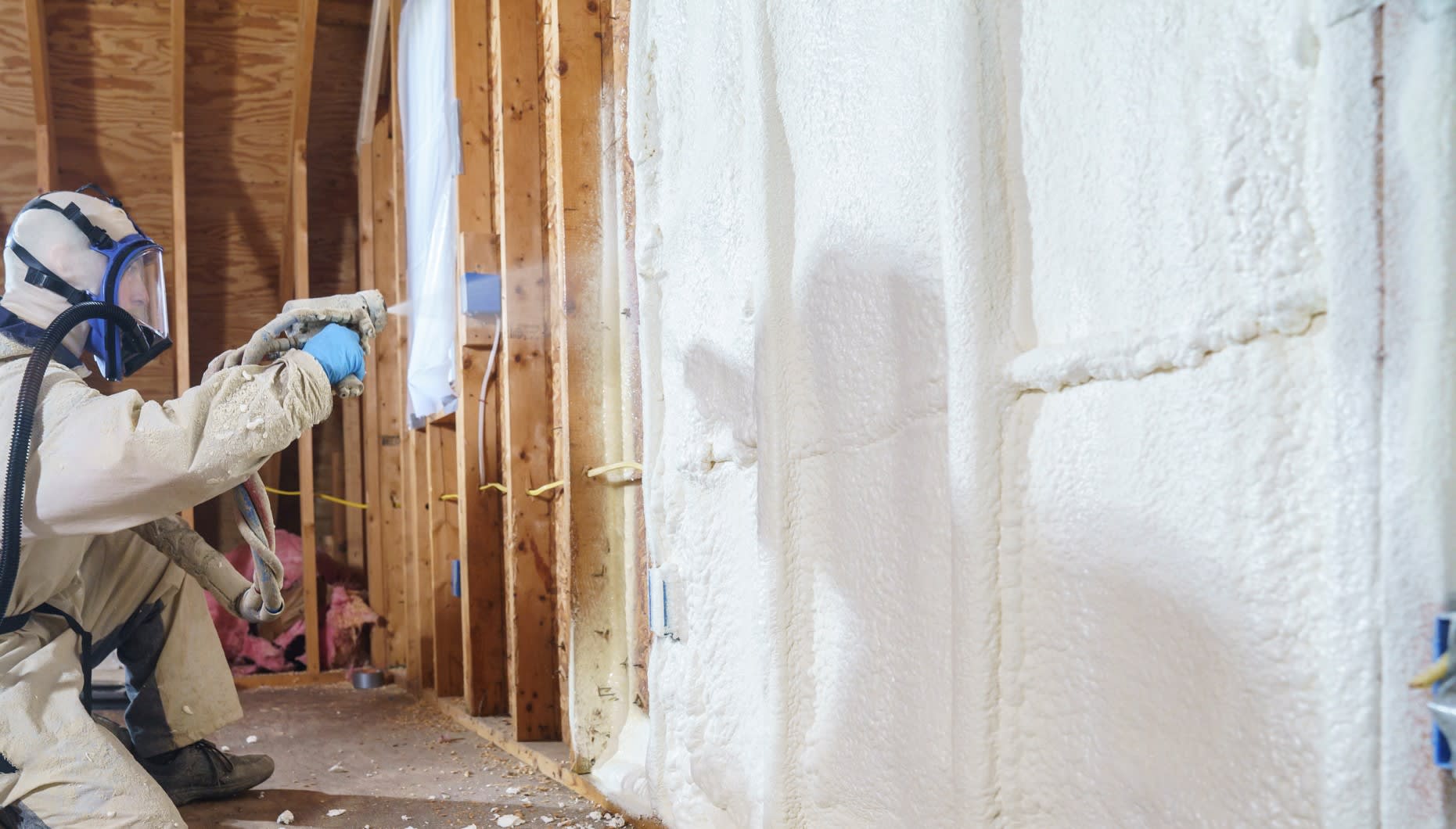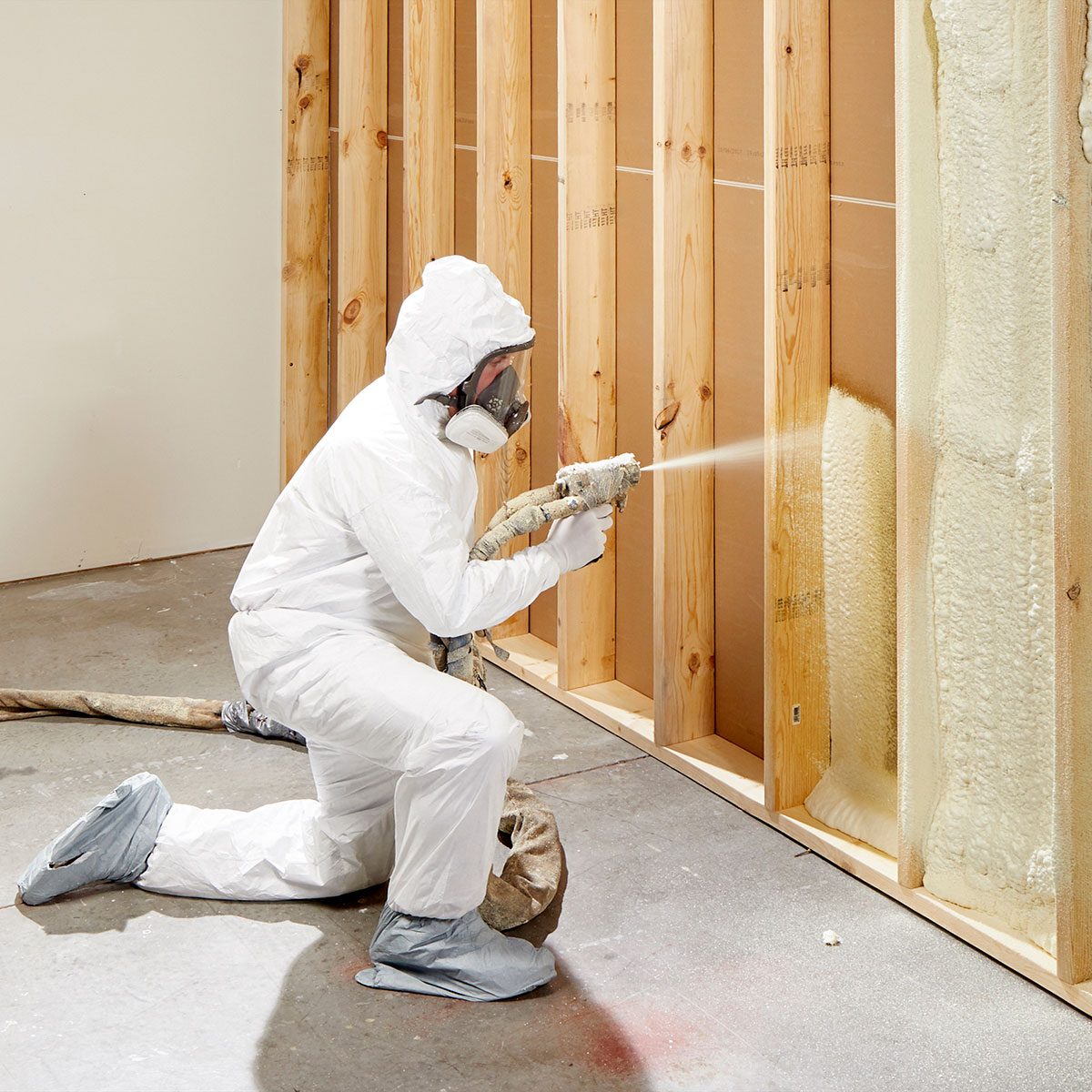Top Applications of Spray Foam for Residential and Commercial Properties
Top Applications of Spray Foam for Residential and Commercial Properties
Blog Article
Top Factors to Choose Spray Foam for Your Next Insulation Job
When taking into consideration insulation alternatives for your next job, spray foam stands out due to its excellent efficiency qualities and effectiveness benefits. As you weigh your selections, discovering the functional applications and long-lasting advantages of spray foam may reveal engaging reasons to include it right into your insulation strategy.
Superior Insulation Performance

The high R-value of spray foam, which measures its thermal resistance, is another key advantage. Closed-cell spray foam, for circumstances, can achieve an R-value of approximately 6.5 per inch, dramatically surpassing fiberglass batts and cellulose. Spray foam insulation creates an airtight seal, which minimizes thermal bridging and decreases the possibility for mold growth due to moisture buildup.

Power Effectiveness Advantages
The energy performance benefits of spray foam insulation are substantial, additional boosting its charm as a leading option for constructing insulation. Spray foam broadens upon application, developing a closed seal that lessens air leaks, which is a typical resource of power loss in standard insulation products.
Furthermore, spray foam insulation flaunts a high R-value per inch, which implies it supplies much more thermal resistance in much less space contrasted to choices like fiberglass or cellulose (Spray Foam). This efficiency not just adds to instant power savings yet also advertises lasting sustainability by decreasing the total energy usage of a structure
Additionally, the execution of spray foam can qualify home owners for energy performance incentives and tax credit histories, including monetary advantages to its energy-saving capabilities. In an age where power preservation is vital, picking spray foam insulation not just enhances convenience but likewise aligns with eco accountable practices, making it a sensible option for both domestic and business jobs.
Wetness and Mold Resistance
Offered its special composition and application approach, spray foam insulation uses extraordinary wetness and mold resistance, making it an ideal choice for different environments. The closed-cell structure of spray foam creates a solid obstacle that properly secures off possible moisture access, therefore minimizing the possibility of mold and mildew growth. Unlike standard insulation products, which can absorb water and supply a reproduction ground for mold, spray foam remains unsusceptible moisture, improving the general wellness of the indoor atmosphere.
Moreover, the application procedure of spray foam entails broadening and filling up voids and fractures, making certain a tight seal that lessens air leaks. This particular not only boosts power performance but likewise aids control moisture degrees within the space. Appropriate moisture control is vital for preventing mold and mildew and mold, making spray foam insulation especially useful in areas prone to moisture, such as cellars and crawl rooms.
In addition to its moisture-resistant homes, spray foam is likewise inherently immune to mold growth. This particular makes sure that homes and buildings remain healthy and balanced and secure in time, supplying satisfaction to home owners and structure managers alike.
Long-Term Expense Financial Savings
Investing in spray foam insulation yields significant long-term price savings, mainly via enhanced energy effectiveness. Unlike standard insulation products, spray foam produces an airtight seal that lessens air leak. This reduction in drafts brings about reduce heating & cooling expenses, as HVAC systems do not have to function as tough to maintain comfortable interior temperatures.
Moreover, the premium insulating buildings of spray foam imply that homes stay consistently comfy year-round, lowering reliance on energy-consuming home appliances. With time, these savings can collect, causing a visible decline in utility expenses.
Additionally, spray foam insulation adds to the long life of your home's framework by avoiding dampness build-up and mold development, which can lead to pricey fixings. With its resilience and resistance to settling, spray foam maintains article its performance throughout the years, making sure that the preliminary financial investment continues to settle.
In significance, choosing spray foam insulation not just enhances your home's energy efficiency but likewise equates right into substantial long-term monetary benefits, making it a sensible investment for house owners aiming to reduce costs while enhancing comfort and sustainability.
Versatile Application Alternatives
Numerous application alternatives make spray foam insulation a highly versatile selection for a range of structure tasks (Spray Foam). This flexibility permits it to be effectively utilized in residential, commercial, and commercial setups, providing to diverse insulation needs
Spray foam can be applied in attic rooms, walls, crawl rooms, and also roof coverings, providing seamless protection that eliminates spaces and voids where air leakages commonly take place. Its ability to increase upon application guarantees a limited seal, which is important for energy effectiveness and wetness control.
Furthermore, spray foam insulation is offered in various formulas, consisting of open-cell and closed-cell types, permitting tailored solutions based upon certain project requirements. Open-cell foam is lighter and far better fit for soundproofing, while closed-cell foam uses premium insulation and architectural honesty, making it ideal for locations subjected to moisture.
Additionally, spray foam can be applied in hard-to-reach rooms, enhancing its viability for retrofitting existing find this frameworks. With the capability to follow various substratums, consisting of wood, concrete, and steel, spray foam insulation stands apart as a functional choice that meets the needs of modern building practices.
Verdict
In final thought, spray foam insulation emerges as an exceptional option for insulation tasks due to its phenomenal thermal resistance, power efficiency, and capacity to produce airtight seals that protect against wetness and mold development. Selecting spray foam insulation makes certain a detailed service that meets the needs of modern building and energy effectiveness standards.
When it comes to attaining ideal energy performance in property and commercial structures, spray foam insulation stands out for its exceptional insulation efficiency.The energy efficiency benefits of spray foam insulation are substantial, additional boosting its charm as a leading option for building insulation.Spending site link in spray foam insulation yields substantial long-lasting cost financial savings, mainly through boosted energy performance.In final thought, spray foam insulation arises as a premium option for insulation jobs due to its outstanding thermal resistance, power efficiency, and capability to develop airtight seals that avoid dampness and mold and mildew growth. Choosing spray foam insulation makes certain a comprehensive service that satisfies the needs of modern-day construction and energy performance criteria.
Report this page